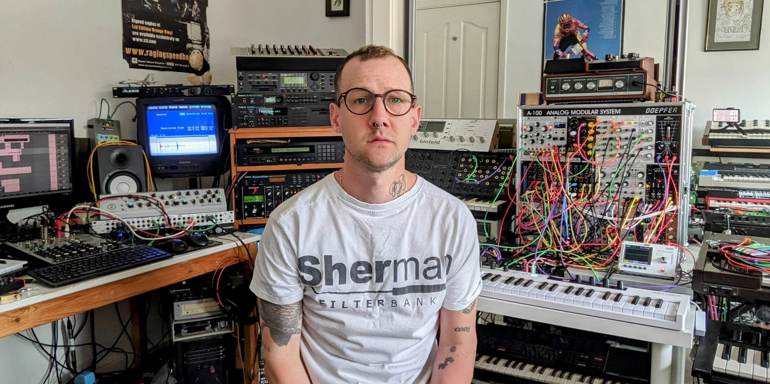
Job Title: Leeds Junior Conservatoire Tutor
Courses Taught: Music Technology
Specialisms: Music Production and Technology, and Creative Coding
Luke Print is a songwriter, producer and multi-instrumentalist, and a tutor on the Leeds Junior Conservatoire Music Technology Course.
Luke has worked as an active musician for nearly two decades, and began academic studies at Leeds Conservatoire in his late twenties. He has performed and toured internationally in bands and as an electronic artist, alongside studio based remixing and production work, and worked as a session bass player. Luke been signed and released by several international labels, and in 2020 signed a publishing deal with EMI. He has run his own studio for over fifteen years, both in the UK and Melbourne Australia, and a record label with almost a hundred releases on the roster. After receiving funding support from the Artist Development Fund at the Conservatoire, he started a company in 2020 producing sample based VST instruments built from his personal collection of analogue and digital synthesisers. The library is installed in all of the Mac labs at the Conservatoire, and available for free download for all students and staff.
Luke's teaching work centres on facilitating students in finding their own means of integrating music technology into their practice and musical identity, by developing critical listening skills and his theory of 'Universal Creative Language' together as a cohort, allowing groups to communicate across genres or time periods to create nodal points of social reference. This typically focuses on supporting the development of self-reflective practice in assessing and defining creative intent, and adapting the context in which we interact with technology and other actors to realise this.
Luke is currently on a scholarship at the University of Huddersfield to conduct PhD research in the field of Music Psychology. His research centres on mental health and creative practice, specifically the creative and professional sustainability of active musicians with bipolar disorder, as predictors of quality of life. His working theory includes an epistemological definition of creativity from a metaphysical perspective, using theoretical physics to position actors as dynamical systems within a creative ecology.
His previous post-graduate research specialisms included coding FM and physical modelling synthesis in Max MSP, human interfacing to convert live EEG readouts to audio visual installations, and experimental integrative compositional approaches to hardware synthesis and sampling.






